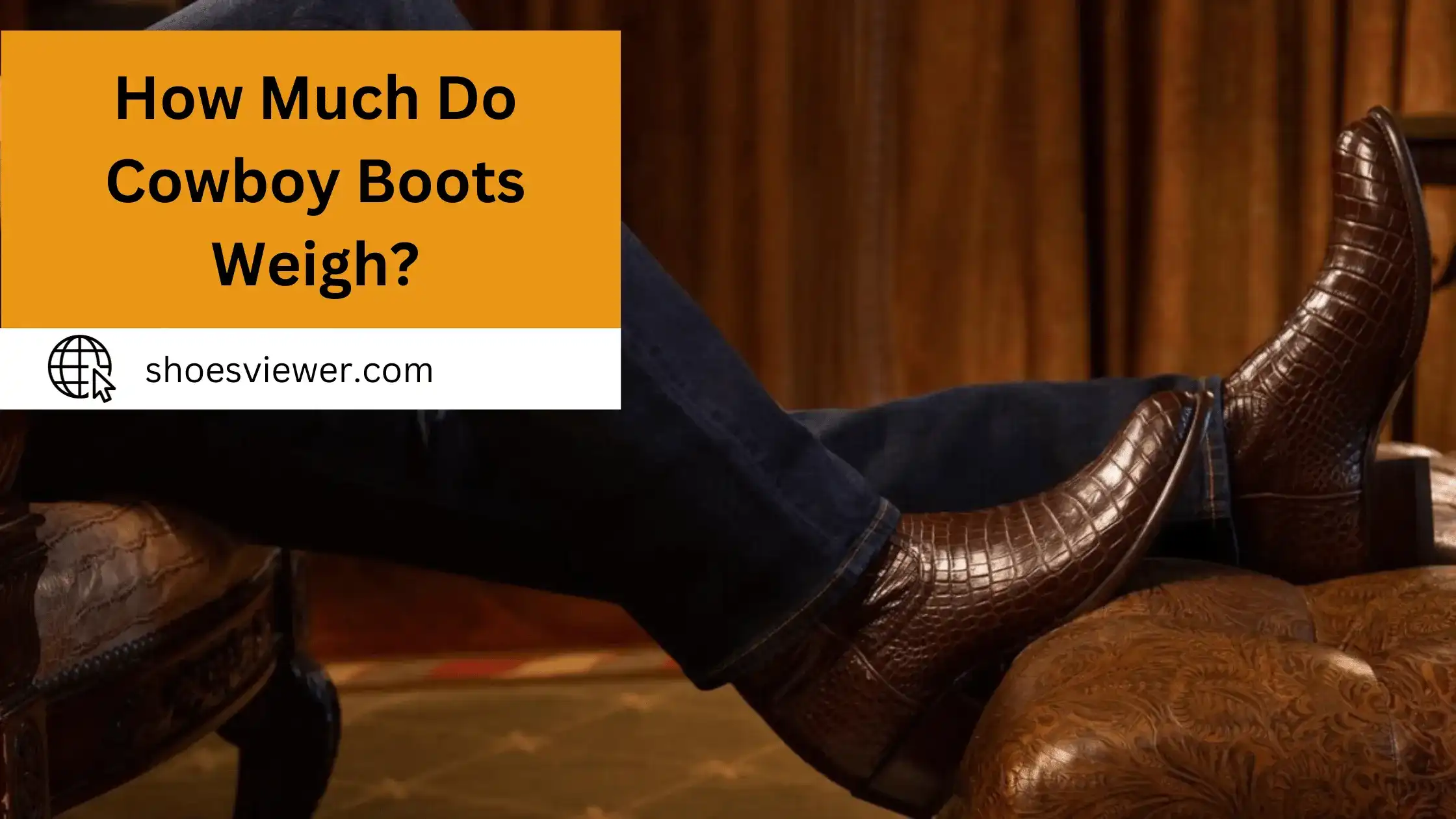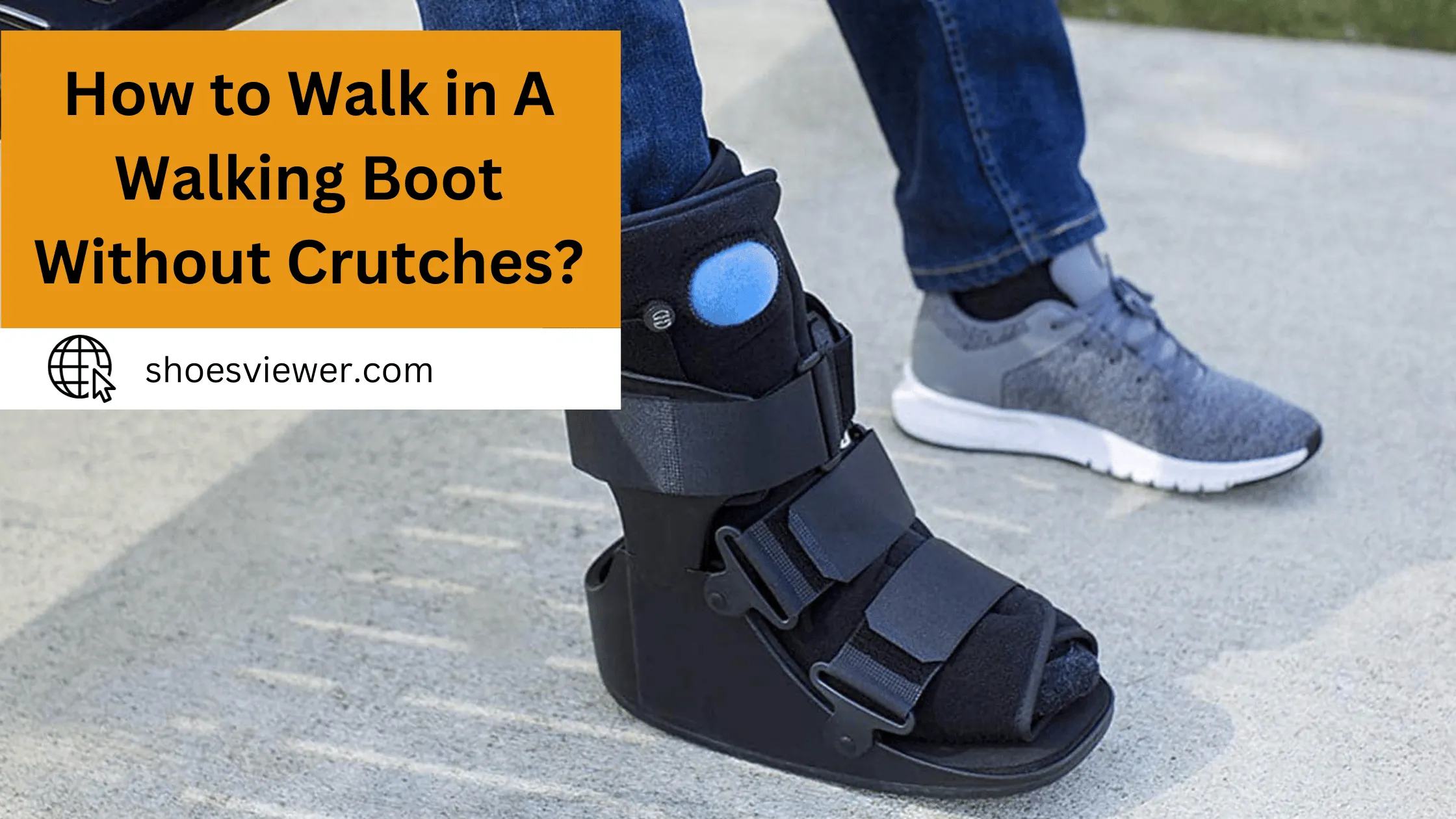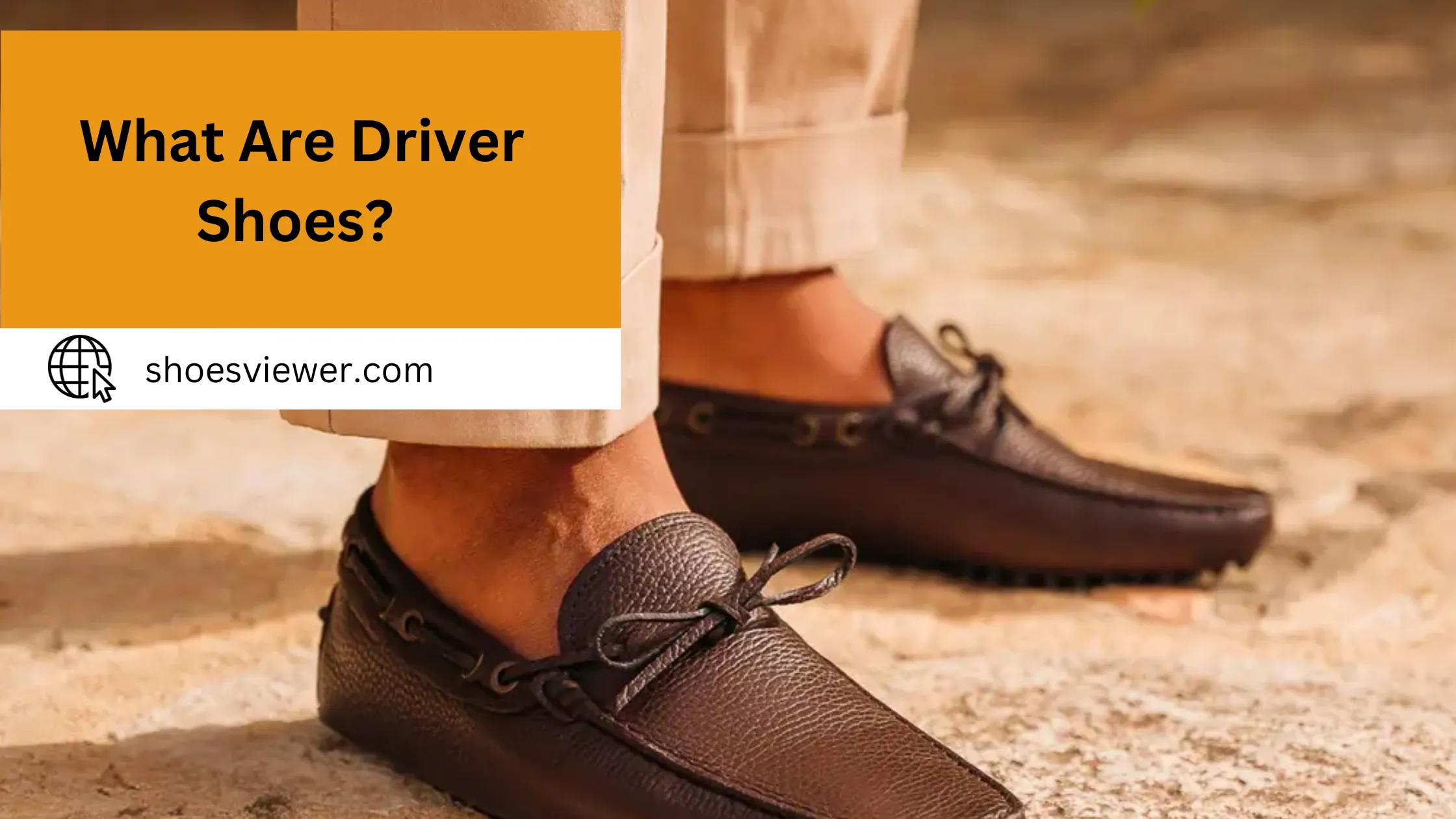As someone who has worn cowboy boots for many years, I’ve grown well accustomed to the feeling of having them on my feet. Being curious and adventurous by nature, I decided to find the answer for myself one day.
After weighing a pair of mine on a scale at home, I was surprised to discover they were four times heavier than trainers! This made me think about how much an average pair of cowboy boots weighs.
Through research, personal experience, and speaking with industry experts, I will answer these questions, plus much more, within this blog post. But before we dive into the details, let’s begin with a quick overview of what it is and its relevance regarding Cowboy Boots.
Weight Range Of Cowboy Boots:
A medium weight range, around 1.5 to 2 pounds per boot, perfectly balances comfort and durability. It ensures that I can move freely while providing sufficient protection for my feet.
However, it’s important to note that the ideal weight range may vary depending on the individual’s preferences and needs. Some may prefer lighter boots for casual wear, while others prioritize heavier boots for specific tasks.
Remember, finding the proper weight range for cowboy boots is a personal journey that requires trial and error. Take the time to try on different boots and consider your specific needs before deciding.
Average Weight Of Cowboy Boots - Exploring The Typical Range For Men And Women:
I’ve always been intrigued by the details that make each pair unique, including their weight. The weight of cowboy boots can significantly impact comfort, functionality, and style. Through my experiences and research, I’ve understood the average weight range for men’s and women’s cowboy boots.
Average Weight Of Men’s Cowboy Boots:
Men’s cowboy boots typically weigh between 3 to 5 pounds (1.4 to 2.3 kg). This range can vary based on materials, the boot’s size, and additional features like steel toes or decorative elements. Leather boots, especially those with elaborate designs, tend to be heavier.
Average Weight Of Women’s Cowboy Boots:
Women’s cowboy boots are generally lighter, usually weighing 2 to 4 pounds (0.9 to 1.8 kg). The difference in weight compared to men’s boots is often due to the smaller size and the use of lighter materials. Women’s boots often prioritize style and comfort, influencing their overall weight.
What Are The Factors Affecting Weight Of Cowboy Boots?
Several factors influence the weight of cowboy boots, each contributing to their overall heft and comfort. Understanding these factors can help you make an informed choice when selecting a pair of cowboy boots. Here are the key factors affecting the weight of cowboy boots:
Material:
The type of material used is one of the primary determinants of a boot’s weight. Leather, a popular choice for cowboy boots, varies in weight depending on its thickness and quality. Full-grain leather, for example, tends to be heavier than suede or synthetic materials. Some boots also incorporate other materials like rubber, which can add to the weight.
Construction:
The way a boot is constructed impacts its weight. Goodyear welt construction, a sturdy method often used in quality boots, can add weight due to the additional layers and materials involved. More straightforward construction methods might result in a lighter boot.
Size:
Naturally, larger boots weigh more due to the increased material used. Men’s boots, typically larger than women’s, are often considered more as a result.
Sole Type:
The type of sole and its thickness are significant weight contributors. Leather soles are generally lighter than rubber soles. Additionally, thicker soles, which provide more durability and support, add to the overall weight.
Insole And Padding:
The insole and any additional padding for comfort can affect the weight. Memory foam or gel insoles, designed for comfort, might increase the weight slightly compared to thinner, less padded insoles.
Decorative Features:
Decorative elements such as metal buckles, elaborate stitching, and additional layers for aesthetic purposes can add weight. Boots with extensive cosmetic work are typically heavier than simpler designs.
Reinforcements:
Some cowboy boots, especially those designed for work or rugged use, have reinforcements like steel toes or shanks. While adding to the boot’s durability and safety, these features also increase its weight.
Waterproofing And Insulation:
Boots designed for outdoor or winter wear may include waterproofing layers and insulation, contributing to a heavier boot than a basic, non-insulated version.
Understanding these factors can guide you in choosing a pair of cowboy boots that balances weight with comfort, style, and functionality, catering to your needs and preferences.
Leather vs. Synthetic Materials- A Weighty Dilemma:
I will discuss my experience with leather and synthetic materials, their advantages and disadvantages, and how to make an informed decision when purchasing fashion products.
Leather- The Luxurious And Durable Option:
Leather has been a staple material in luxury fashion for centuries. It is a natural material from animal skins like cows, goats, and pigs. Leather products are usually expensive and seem to last forever, making them a significant investment, but are they worth the price?
Advantages Of Leather:
- Leather is a durable material that can withstand wear and tear, making it a long-lasting option for accessories and clothing.
- Leather has a sophisticated and traditional appearance and can instantly elevate an outfit. It’s a breathable material that molds to your body with time, giving you the perfect fit.
Disadvantages Of Leather:
- Leather is expensive, and authentic leather costs much more than synthetic materials.
- Leather is not sustainable and can contribute to animal cruelty and environmental problems.
Synthetic Materials- The Affordable And Versatile Option:
With the advancement of technology, synthetic materials have come a long way in the fashion industry. Synthetic materials can be a great option for fashion products due to their affordability, versatility, and eco-friendliness.
Advantages Of Synthetic Materials:
Synthetic materials are less expensive than genuine leather, making them more budget-friendly. They are versatile and can be customized to fit any design or color. Artificial materials are cruelty-free and sustainable, making them a more ethical choice.
Disadvantages Of Synthetic Materials:
Synthetic materials are less durable than leather and can wear out quickly, making them less of an investment. They are often made from petroleum, which can be environmentally unfriendly.
Conclusion:
The weight of cowboy boots depends on many factors style, size, materials, etc. Even with the same features, the weight will vary between brands and makers. Regardless of your choice of cowboy boots, you must check that you feel comfortable wearing them. That’s why I’d encourage you to try a few different styles until you find a pair that perfectly fits your feet without feeling too heavy or squishy. So why not go out and explore the range of choices available now? I know from experience that it can be a very satisfying experience once you find the right pair of cowboy boots for you!







